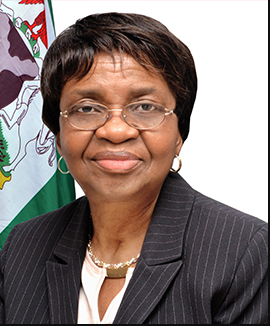The Network for Health Equity and Development (NHED) and Corporate Accountability and Public Participation Africa (CAPPA) have thrown their weight behind the National Agency for Food and Drug Administration and Control (NAFDAC) over its decision to enforce the ban on the production and sale of alcoholic beverages in sachets, PET bottles, and glass bottles of 200ml and below, beginning December 2025.
In a strongly worded joint statement on Sunday, the two leading public health advocacy organisations described the ban as a long-overdue public health intervention essential for safeguarding the well-being of Nigeria’s children, youths, and other vulnerable populations.
They agreed with NAFDAC that the packaging, pricing, and aggressive marketing of these products had made highly potent alcohol dangerously accessible, especially to minors, and were contributing significantly to rising addiction, social disorder, road crashes, and non-communicable diseases across the country.
They noted that when NAFDAC first announced the ban in 2024, it gave manufacturers a multi-year phase-out period, which ends in December 2025, to exhaust existing stock. But some alcohol manufacturers flagrantly continued production even after the deadline.
NHED and CAPPA condemned the pushback from these manufacturers, particularly the claim by the Manufacturers Association of Nigeria (MAN) that the ban could lead to investment decline and retrenchment, saying it was a familiar scare tactic to push government to prioritise commercial greed over public health.
The manufacturing process of these products, they argued, is mostly mechanised and requires relatively limited human effort; hence, the claims about huge job losses were contrived.
“We reject in its entirety the claims by the Manufacturers Association of Nigeria (MAN) that the ban will trigger a loss of over N1.9 trillion in investment and lead to the retrenchment of over 500,000 workers,” the organisations stated.
“These figures are not only inflated and unverifiable, but they also represent a familiar scare tactic used by alcohol and tobacco corporations globally whenever governments attempt to regulate harmful products.”
Furthermore, they contended that rather than engaging honestly with evidence-based public health policies, industry actors had chosen to weaponise economic misinformation to blackmail the Nigerian government and regulatory agencies.
“This behaviour is irresponsible, deceptive, and unbecoming of entities that claim to operate ethically,” the NHED and CAPPA added.
Dr. Jerome Mafeni, NHED’s Technical Director, emphasised that protecting lives must take precedence.
“The long-term social and economic costs of alcohol-related harm far outweigh any short-term profits that manufacturers seek to protect,” Mafeni said. “Nigeria currently bears the burden of increased alcohol-related violence, reduced productivity, escalating healthcare costs, and a rising addiction crisis among young people. These harms disproportionately affect poor and marginalised communities, who sachet alcohol products specifically target.”
He added, “It is unacceptable that children can purchase high-concentration alcoholic products for as little as ₦100. It is equally unacceptable that manufacturers have, for years, prioritised profit over the safety and well-being of Nigerians.”
For Akinbode Oluwafemi, government regulation to protect public health should not be negotiable.
Oluwafemi said: “NAFDAC’s decision aligns with global best practices and mirrors what responsible governments worldwide have done to curb harmful alcohol consumption. No credible public health agency anywhere would permit the continued marketing of such products in packaging designed to encourage unrestricted, on-the-go, and underage drinking.
“We commend NAFDAC for resisting corporate bullying and for standing firmly on the side of science, public health, and national interest. We equally call on the Federal Ministry of Health, the Ministry of Finance, the Standards Organisation of Nigeria (SON), and the National Orientation Agency (NOA) to rally behind the agency and ensure seamless implementation of the ban.
Both organisations urged the government not to yield to corporate pressure,
“We urge President Bola Ahmed Tinubu and the National Assembly to see through the industry’s theatrics and avoid any attempt to suspend, water down, or delay this life-saving policy. The well-being of over 200 million citizens must not be sacrificed at the altar of corporate profit,” they added.
Beyond enforcing the ban, the organisations urged the government to implement additional alcohol control measures, including taxation, stricter marketing regulations to protect children, clear labelling, and nationwide sensitisation on alcohol-related harm.
“NAFDAC’s ban is the right policy at the right time. NHED and CAPPA stand resolutely with the agency and with all Nigerians committed to a healthier, safer, and more responsible society,” the statement concluded.

